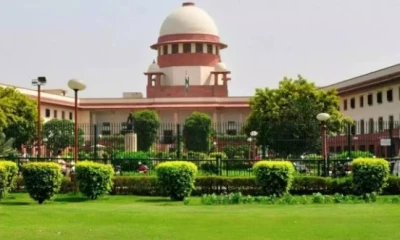The Supreme Court rebuked the Tamil Nadu
Government for purportedly issuing general orders through State police to
restrict the live telecast of the Ram Mandir Pran Pratishtha ceremony. The
court deemed these orders as “atrocious” and directed the State not to deny
such permissions summarily, labelling them a violation of fundamental rights.
Admitting a public interest litigation-PIL
that claimed a blanket ban on live streaming the consecration ceremony and
related religious activities, the top court emphasized that the State must
provide specific reasons for rejecting live telecast requests.
Justices Sanjiv Khanna and Dipankar
Datta expressed their trust that authorities would act in accordance with the
law, urging that oral or general police orders should not be enforced.
The Bench, acting on the petition filed
by Bharatiya Janata Party’s State unit secretary Vinoj P Selvam, recorded in
its order that rejected requests should be accompanied by reasons.
Senior counsel Dama Seshadri Naidu,
representing the BJP functionary, presented police orders imposing restrictions
on live streaming and religious functions, criticizing the ruling Dravida
Munnetra Kazhagam-DMK for allegedly harbouring anti-religious sentiments.
Solicitor General Tushar Mehta,
representing the Central Government, supported the plea, asserting that LED
screenings in temples were being halted in the State. Mehta emphasized the need
for a strong message from the highest court that the Constitution still governs
the nation, including Tamil Nadu, and that none should be barred from
performing religious rituals.
The Tamil Nadu Government’s additional
advocate general or AAG Amit Anand Tiwari countered the allegations, stating
that there were no restrictions in place and dismissing the petition as
politically motivated.
The Bench, displeased upon reviewing the
orders presented by Naidu, questioned the validity of denying permissions based
on the proximity of minority communities.
The court instructed Tiwari to ensure
that rejections were not based on such reasons and emphasized the importance of
maintaining data on granted and refused permissions. Tiwari assured the State
would make decisions in accordance with the law.
Responding to the controversy, Union
Minister Nirmala Sitharaman accused the Tamil Nadu Government of hindering the
live telecast of the Ram Temple event, branding the ruling DMK as “Hindu-hating.”
The Tamil Nadu Government, in turn,
refuted these claims, and clarified that no limitations were imposed on
devotees’ religious freedoms in temples.
The Supreme Court scheduled the next
hearing for January 29, underscoring the need for transparency in the
decision-making process regarding live telecast requests and religious
activities related to the Ram Temple ceremony.

















